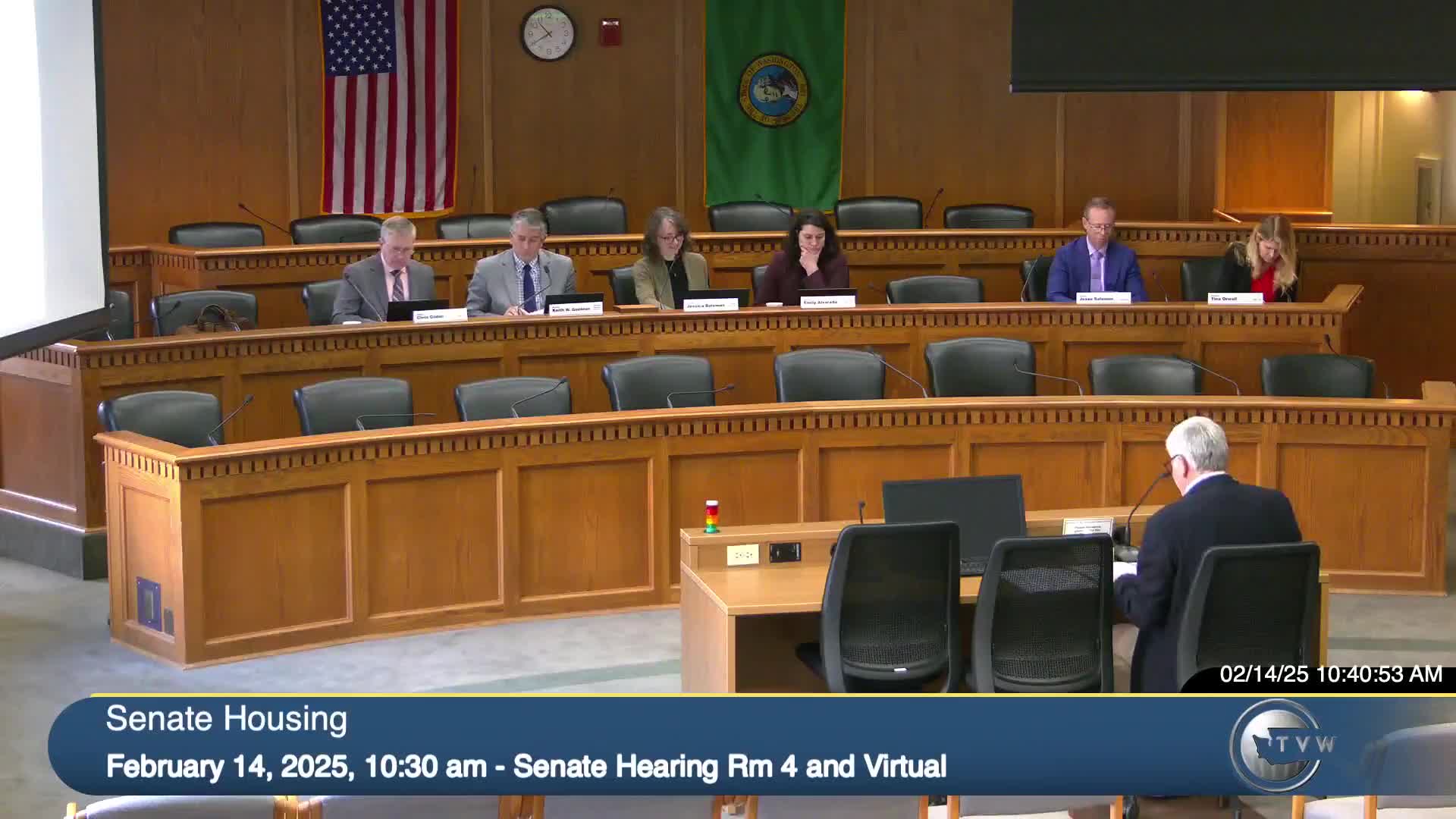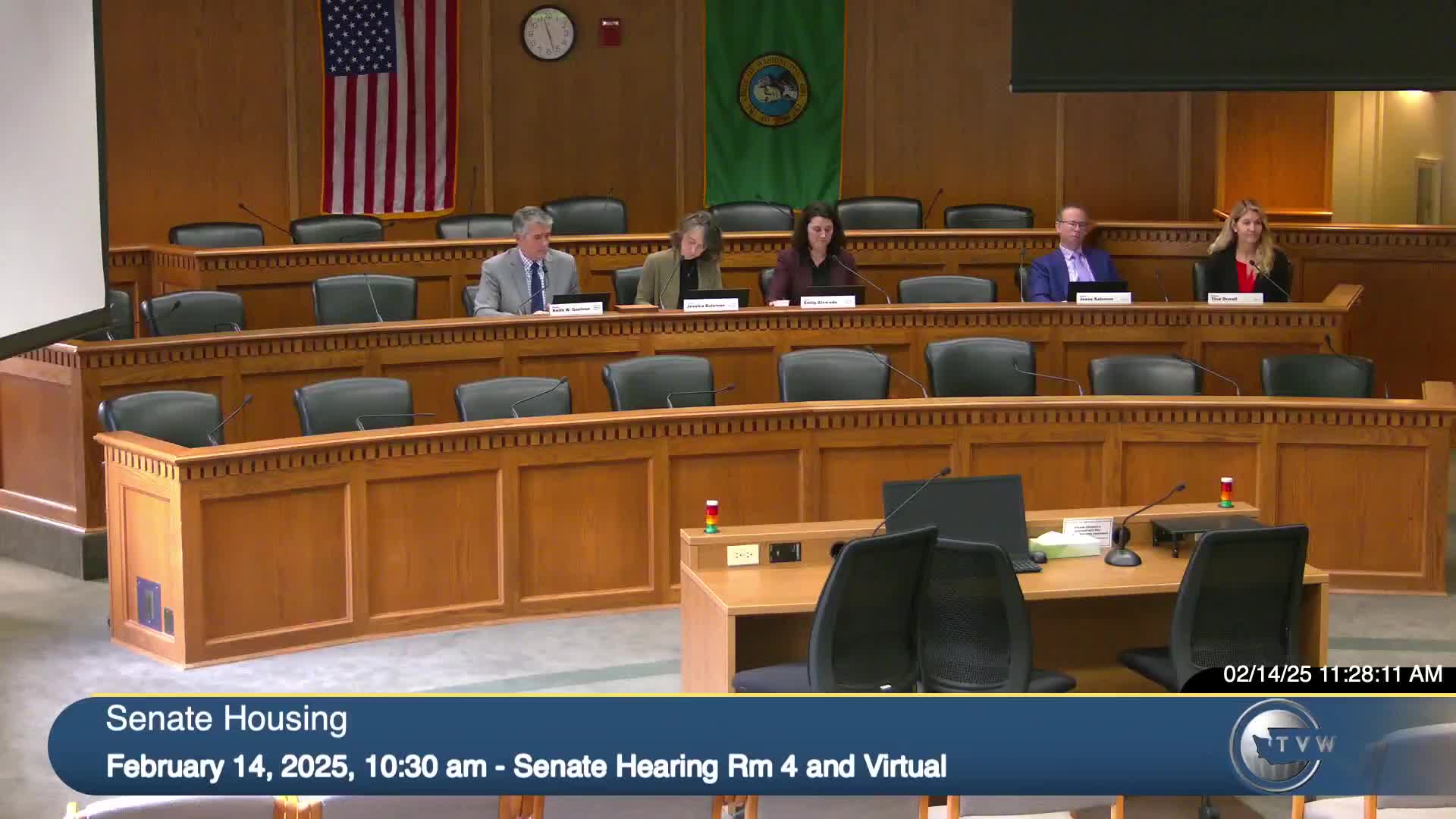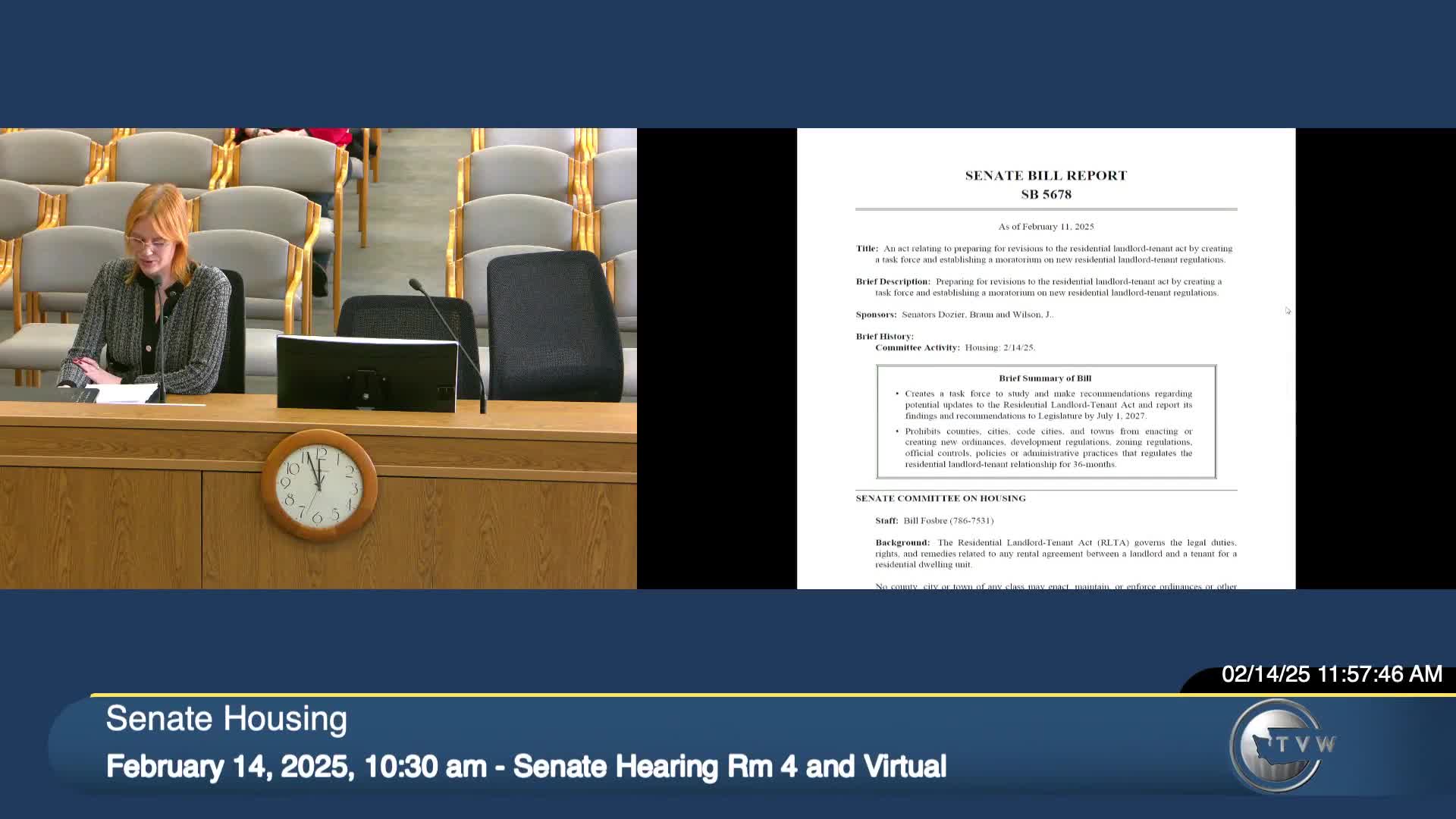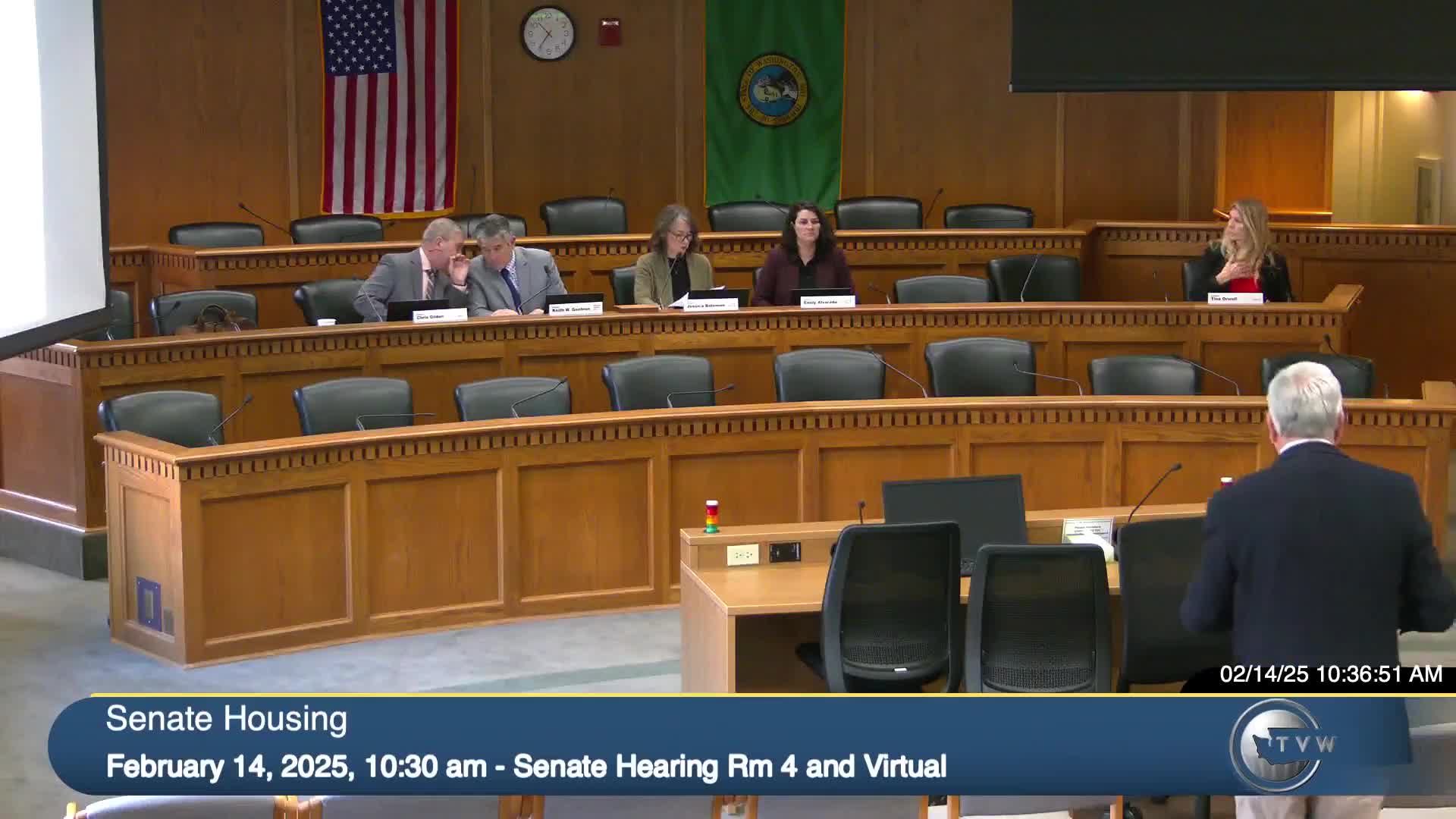Article not found
This article is no longer available. But don't worry—we've gathered other articles that discuss the same topic.

Committee hears bill to let more Washington counties use multifamily tax exemption to spur housing in UGAs

Senate bill would expand foreclosure mediation to condo/HOA owners and add $80 loan origination fee to fund program

Executive session: committee adopts substitutes and sends three housing bills to Ways & Means

